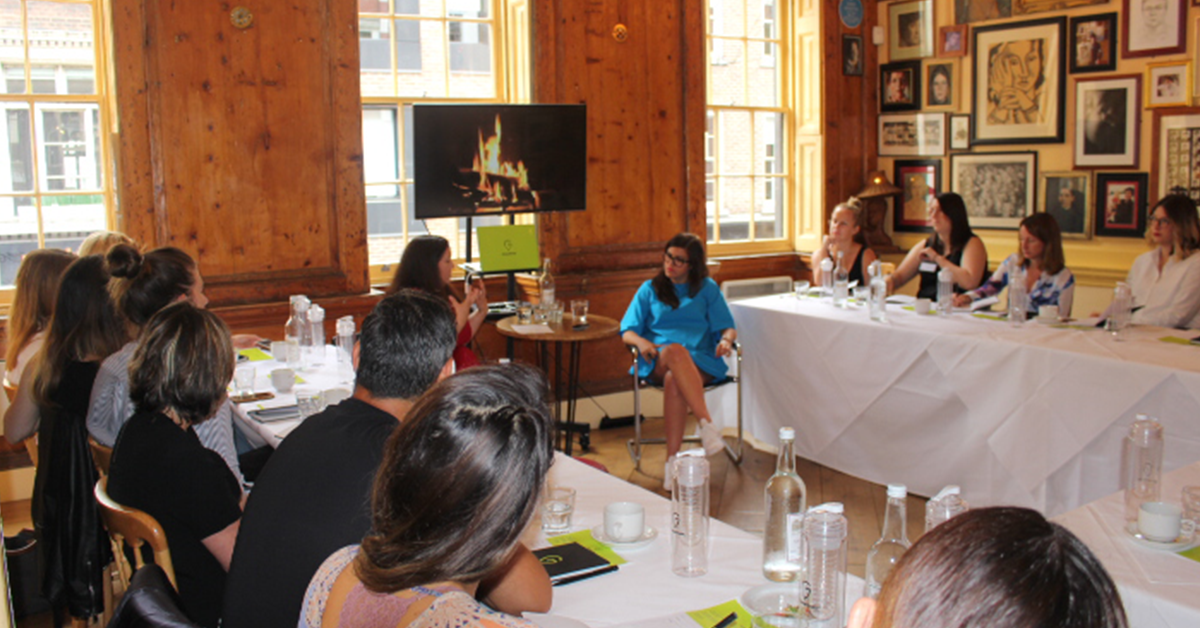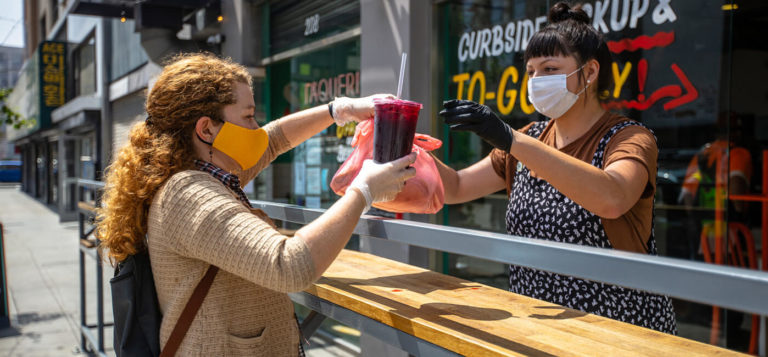On Thursday 12th July, we held the inaugural event for GroundTruth’s “Changing Martech”, an initiative that brings voices together to help create a more inclusive, equal, braver and supportive culture within our industry.
In the first session, we discussed women being under-represented in our industry. Diversity may now be a common theme at industry conferences and trade magazines but talk to pretty much any woman in our industry and it won’t be long before you realise that true parity for men and women is, if not a distant, still very much a dream.
Change is happening fast but there is still much to be done, and GroundTruth UK wanted to be part of the solution. Changing Martech is based around a series of events run throughout the year, featuring industry change leaders discussing solutions to the myriad issues causing a lack of true diversity in martech.
The inaugural event, taking place at the Union Club in London, was mainly made up of women from agencies, publishers, trade bodies and tech companies gathering to talk about what individuals, companies and the industry as whole could do to act and be a catalyst for real change.
Julie Fairclough, Senior Director Marketing EMEA at GroundTruth said, “At GroundTruth London, we certainly don’t have all the answers and are continually learning ourselves, but we want to play our part in helping to shape and create a better culture for everyone. We hope our Changing Martech initiative will help people to be braver, have the confidence to take the required actions to be their best selves, and inspire those who work around them to do the same – that is to inspire everyone, not just females.”
Speak out
The attitudes toward women in business are so ingrained that often men aren’t even aware of negative behaviour. Women should feel confident in becoming more vocal in calling out such behaviour, in every situation, if true change is ever to happen.
For instance, benevolent sexism was highlighted as a common issue in the martech industry where it is still common for a woman to be the only female representative in meetings of all sizes.
Amy Lawrence, Head of Digital Investment at Mediacom, said “Benevolent sexism happens all the time (such as apologising for swearing ‘with ladies in the room’) and most men aren’t even aware of this. I believe it’s up to us to call it out. If we raise awareness of things like this, men will become more aware that it can be just as negative as hostile sexism and take steps to address it.”
Speaking out and standing up was felt to be just as important when faced with obvious tokenism toward women, despite being more than qualified for the task they have been appointed.
Geneva Loader, Head of Marketing Technology, Manning Gottlieb OMD, said, “I recently hosted a panel, and was told by the organiser that being a woman was the reason I was invited to take part. I manage a team of people working with clients all day on exactly the sort of issues the panel were talking about but apparently it was only being a woman that made me suitable. In those sorts of situations, we need to call it out more, as it’s the lack of calling out in so many situations that I think is a problem.”
The problem of true diversity in industry events is an issue getting ever-more attention and one that all agreed needed continued pressure from all sides of the industry.
Fairclough agreed, but made the point of taking responsibility. “Recently an event organiser stated that for one woman who takes part in an event, seven need to be approached. For men, only two need to be approached. This makes sense, as women are less likely to ‘blag’ it than men. Recently, I was asked to step in on a panel session at an event, but as only had hours to prep rather than months, nerves took over so I refused. It immediately dawned on me that I was part of the problem. Given the choice again, it would be very different.”
Joanna Burton, VP European Strategy, SpotX pointed out that while it’s great to see more female speakers at industry events, not everyone wants to be on stage. “One decision we can each make now is to be a good audience member and rally for the female panellists, listen to their point of view, maybe give them an extra tweet or two. Listening is a skill. Good listeners can often be over-looked but, after all, what is the event without the audience?” she said.
Don’t Leave Men Behind
Although the conversation was dominated by the systemic problems of sexism towards women in our industry, the role of men was also identified as key to any truly effective change.
The welcome spread of high profile diversity initiatives and change throughout the martech industry, increasingly driven from the very top, ran the risk of having a negative impact unless handled properly.
One senior agency attendee pointed out: “Men are starting to feel a bit alienated and instead of a focus on diversity being a positive change, as it should be, it’s seen as tokenism, which can have a negative impact on the business. We need to manage this carefully.”
This was especially true in ensuring the positive benefits of lessons from initiatives such as women leadership courses, and ensuring they were spread throughout the organisation, to benefit both men and women, and the company as a whole.
As Lawrence said; “Women in leadership courses are definitely needed but we need to make sure these sorts of things are shared, as otherwise how can you expect men to learn and be aware of what needs to happen. It’s so important to bring the men along with you.”
Changing the language
Alongside the need to speak up, another big theme during the discussion was the need to change the actual language the industry uses in daily working life.
This begins at the very beginning, in CVs and job descriptions. As Jane McNeill, COO at the IAB, pointed out, “look at how trading roles always use very male-skewed characteristics like ‘aggressive’ and ‘hard hitting’ and in the creative agency world, we talk about ‘rock stars’. When you’re trying to change things, you need to start at the very beginning.”
Language was also recognised as a problem when it came to leadership roles. As Steph Miller, Head of Sales Marketing Services, Zoopla, summed up, ‘There isn’t parity in the language we use. Words like dominant and forceful are used in a positive light to describe men leaders, but those sorts of words used for women are turned into words like battle-axe or bossy.”
Future Change
GroundTruth’s Changing Martech will run throughout 2018, in an effort to help find solutions to the issues we identified and to inspire both individuals and the companies they work for to build a better industry for everyone.





